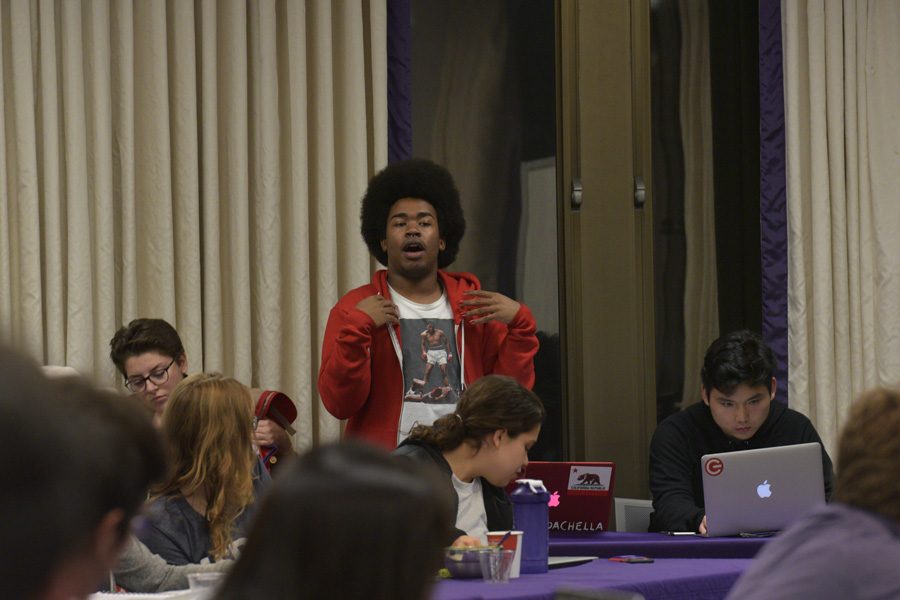ASG Senate creates committee to review student group funding system
Ingrid Cherry/The Daily Northwestern
McCormick senior Macs Vinson addresses senators at ASG Senate on Wednesday night. Senate passed a bill to establish a funding reform review committee.
October 20, 2016
Associated Student Government Senate passed a bill establishing a funding reform review committee that will gather student opinion about how ASG funds student groups.
The committee, authored by ASG President Christina Cilento, will make recommendations and guidelines based on student feedback on the current funding model, in which students pay an activity fee that ASG then allocates to student groups. Results will be presented to Senate the first week of January.
The fee, set at $180 for the 2016-2017 school year, is collected from undergraduate students. The $1.5 million is distributed through ASG’s A-status and B-status finance committees. But the fairness of the system has come under question in recent years, Cilento said.
“We’ve heard from multiple student groups and multiple students throughout the years that the way we currently fund is not ideal,” the SESP senior said. “We want to be able to expand the funding that we’re able to offer to student groups, solve some of those inequities, look at the Student Activities Fee and figure out how we can make sure that all student groups that show financial need are able to be funded.”
Last April, ASG Executive Vice President Macs Vinson, a McCormick senior, told The Daily he wanted to explore reducing the “hierarchy” between student groups.
“Our funding system literally only accommodates only a few groups, and the other groups are just finagled to fit into it,” Vinson told The Daily in April, citing groups such as A&O Productions and Mayfest. “What we’re effectively trying to do is thinking about all the groups we have and how to best cater to them.”
Cilento said if Senate approves the committee’s recommendations, Patricia Telles-Irvin, vice president for student affairs, and Nim Chinniah, executive vice president, would present them to the Board of Trustees in March 2017.
Eric Oringer, vice president for A-status finances, said ASG has been discussing funding reform throughout the past three years and that the bill shows progress toward a better funding system.
“We can’t do funding reform without presenting this to the Board of Trustees because it is ultimately up to them,” Oringer told The Daily. “But this committee is a step in the right direction.”
Last year, ASG was looking to increase the Student Activities Fee to supply more money to the funding pools so student groups can put on more events, Oringer said, but ultimately did not present the proposal because it felt “too rushed.” The committee will report how students feel about raising the Student Activities Fee, Oringer said.
In recent years, B-status groups have said they don’t have enough money to meet their groups’ needs, Oringer said. This reform could potentially give a higher percentage of allocations to B-status to meet the increased demand, he said.
Although A-status groups would still receive more money from the pool in total, B-status groups would potentially receive a slightly higher proportion of the funds in terms of overall allocation, Oringer said.
Vinson told The Daily the committee’s formation is necessary to bring about change in regards to how ASG does funding on campus.
“We have to convince not only the students — and make sure we’re getting their input and designing something that satisfies what students in their organizations need — but also satisfy the administrators,” Vinson said.
Email: [email protected]
Twitter: @fathmarahman


